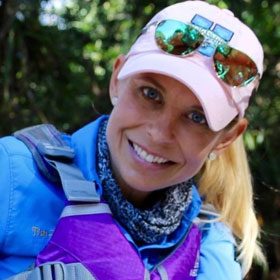10 Wildlife Conservation Resolutions for the New Year
By Debbie Hanson
Dec 03, 2019
Ten ways to make a positive impact on wildlife conservation in the coming year. Learn what is wildlife conservation, importance of wildlife conservation
You may already have a list of resolutions started with the hopes of sparking a few new positive changes in your life. Although, instead of resolving to hit the gym more frequently or vowing to end late night snack sessions, include wildlife conservation to expand your view of what New Year's resolutions should be about.
You might be wondering, what is wildlife conservation exactly? Or, beyond this question, which resolutions can you make in order to have a positive impact on our natural ecosystems?
Wildlife conservation is the act of protecting animal species to prevent habitat degradation and extinction, and here are specific resolutions you can make to recognize the importance of wildlife conservation while making a difference in the New Year:
1.Learn and practice proper catch and release
How you handle your catches can determine whether or not they survive to grow larger and reproduce. Practicing proper catch and release is important, particularly in highly pressured waterways, in order to maintain healthy fish populations.
2. Strive to eliminate single-use plastics
Buy a reusable water bottle, bring reusable grocery bags when you go shopping, and skip the plasticware from restaurants in lieu of reusable bamboo cutlery or silverware. Over 1 million birds die every year from ingestion or entanglement in plastic, but the ecological issues don't stop there. According to the National Oceanographic and Atmospheric Administration, over 100,000 marine mammals are killed by plastic pollution annually.
3. Participate in a coastal clean up event near you
Fish and wildlife conservation efforts include maintaining healthy, clean habitats so that wildlife can continue to thrive. Join a local movement to remove trash from aquatic resources and marine ecosystems while helping to inspire a change in the behaviors that cause pollution.
4.Volunteer for wildlife conservation organizations
For example, the U.S. Fish and Wildlife Service offers volunteer opportunities at more than 500 refuges and hatcheries throughout the United States.
5.Learn about the Fish and Wildlife Conservation Act of 1980
This act declares that the improved conservation and management of fish and wildlife, particularly nongame fish and wildlife, will assist in restoring and maintaining fish and wildlife and in assuring a productive and more esthetically pleasing environment for all citizens.
6. Speak up about conservation
Share information with your friends and family about the conservation of wildlife. Encourage everyone you know to support efforts to sustain healthy ecosystems by taking part in activities such as recycling, planting native trees, and cleaning up our beaches.
7. Participate in monofilament fishing line recycling
Improperly disposed of fishing line can cause devastating problems for marine life. In Florida, for example, over 40 counties have recycling bins in place to help reduce fishing line waste in our marine environments.
8. Eat sustainably caught seafood
Before you order the sushi special or Chilean seabass, consider where it came from. Becoming an informed seafood consumer can have a direct impact on reducing demand for overfished species.
9. Don’t pour hazardous substances down the drain or put them in the trash
Things like paint thinner, furniture polish, and antifreeze will pollute our waterways and environment, which impacts people as well as wildlife. If you want more information on how to dispose of hazardous material properly, reference the EPA's guide to safe management of household hazardous waste.
10. Educate friends and family about why fishing and hunting regulations are important for wildlife conservation
State agencies sell recreational fishing and hunting licenses (sales assist with conservation efforts), provide information about seasons, limits, methods, and areas that are open or closed.
Pick a couple of these conservation resolutions and stick to them for the sake of our wildlife… and the next time someone asks, "What is wildlife conservation?" or "How can I make a difference?" you have the answers.









